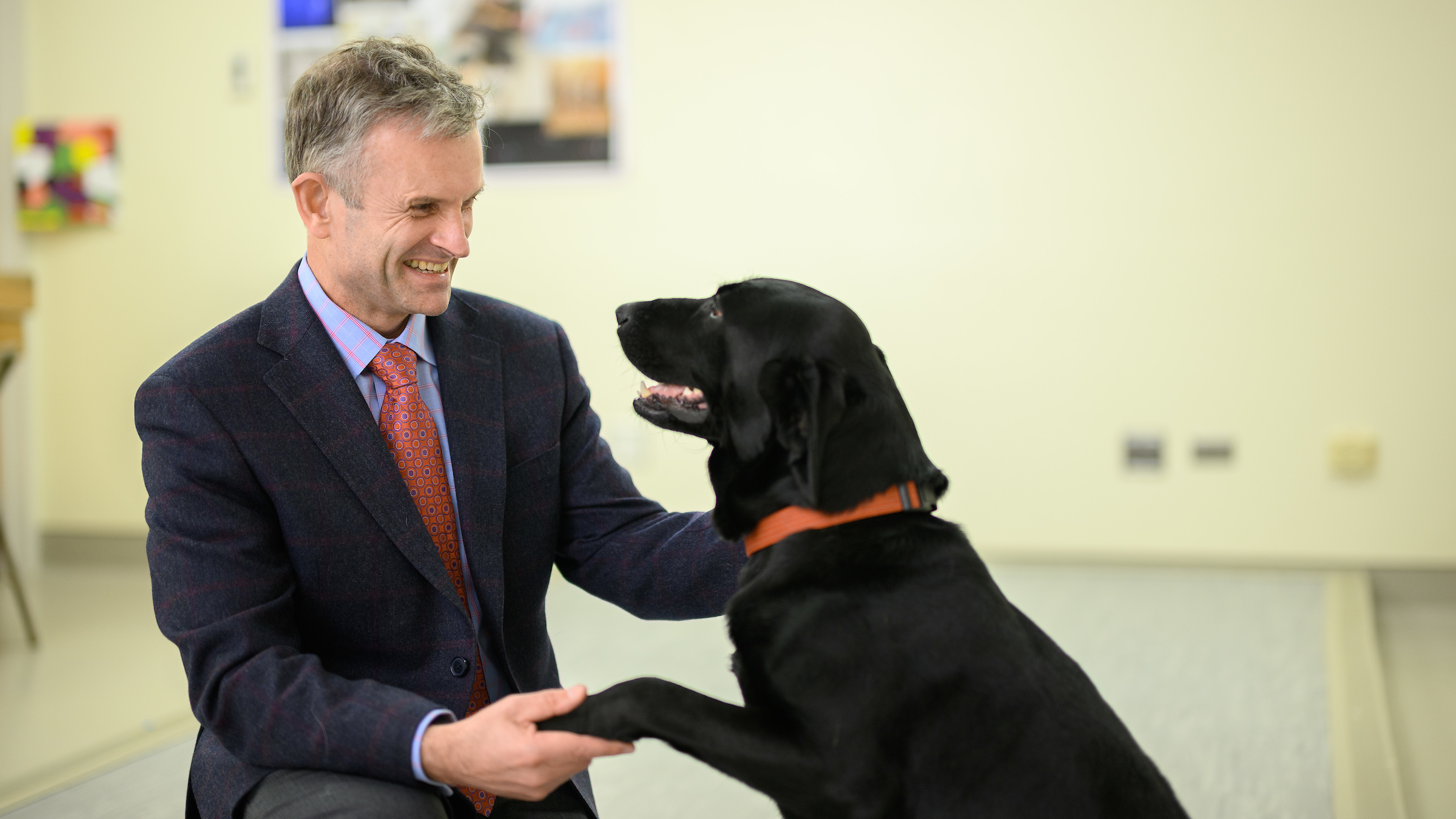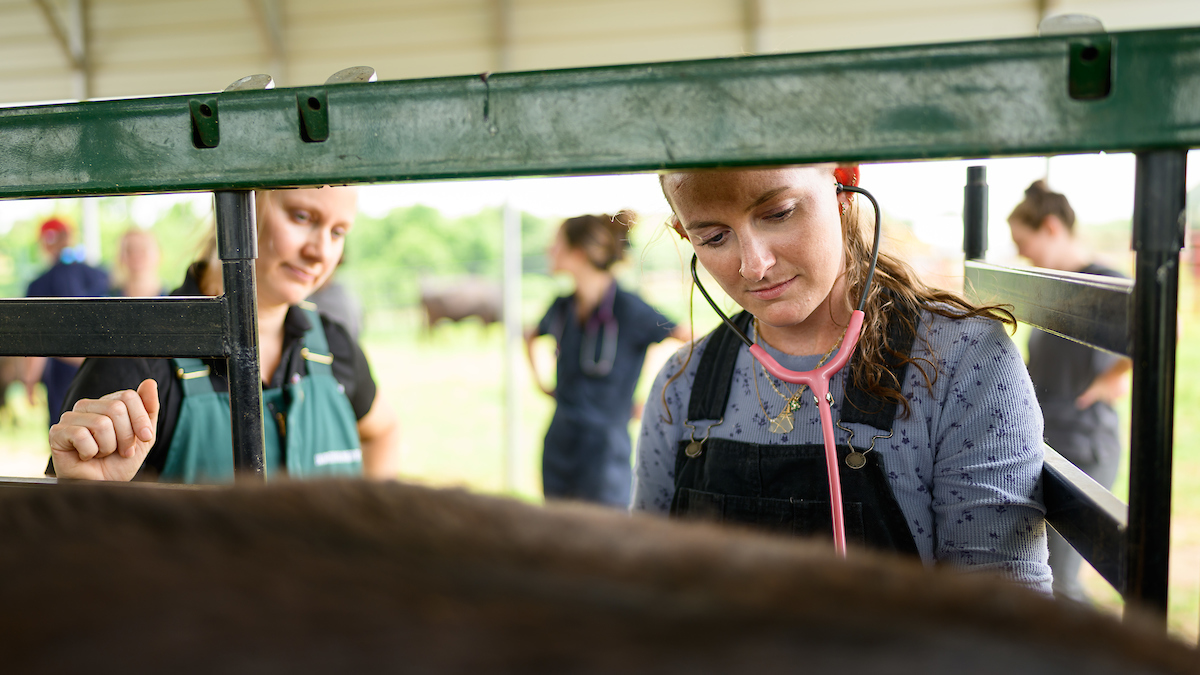Groundbreaking Pain Researcher Lascelles Will Receive Distinguished Professorship

Internationally recognized pain expert Duncan Lascelles, professor of translational pain research and management at the NC State College of Veterinary Medicine, will be the recipient of the Dr. J. McNeely and Lynne K. DuBose Distinguished Professorship in Musculoskeletal Health. He is the Director of the Comparative Pain Research and Education Center at NC State. He will formally receive the professorship during a ceremony at the CVM on May 11.
Lascelles’ research program, Translational Research in Pain, is dedicated to answering critical questions about pain control and pain mechanisms through high quality, innovative research. The goal is to improve pain management in animals and humans by developing methods to measure the impact of pain, unraveling the neurobiological signature of pain in naturally occurring chronic disease in animals and testing novel therapeutics for pain relief.
“Dr. Duncan Lascelles is truly a world leader in the area of pain measurement and management in veterinary medicine,” says Kate Meurs, interim CVM dean. “His work targets a unique and underserved aspect of veterinary medicine which has a direct impact on the comfort and happiness of our patients and the people who care about them.”
After graduating from the veterinary program at the University of Bristol, U.K. with honors in 1991, Lascelles completed a PhD in aspects of pre-emptive/perioperative analgesia at the University of Bristol. After an internship and a surgical residency at Cambridge University in the U.K., he accepted a fellowship in oncological surgery at Colorado State University, followed by post-doctoral research at the University of Florida.
“This is truly a great honor,” Lascelles says. “One of the highest in academia. It has put a spring in my step and re-energized my desire to drive forward clinically impactful research in pain and musculoskeletal health.”
The position is being made possible by a $1 million gift from the Duboses, matched by $500,000 from the Distinguished Professors Endowment Trust Fund, creating a $1,500,000 Distinguished Professorship endowment.
The couple had never met Lascelles prior to their donation, but have long had a love of dogs, and a deep concern about the debilitating pain associated with musculoskeletal disease, and a passion for advancing our understanding of how to maintain musculoskeletal health in dogs. Lascelles has since had a chance to speak with the couple by phone, and was impressed by their interest in, and knowledge of, the science of musculoskeletal health.
“The funds from this endowment will support our innovative research aimed at optimizing and maintaining musculoskeletal health in dogs.”
“Mac and I have had an interest in sporting dogs for many years,” says Lynne Dubose. “Retrievers in particular have been our companions in our home, in the field and in the AKC Retriever trials. The loyalty, intelligence and unfailing work ethic of these special animals deserves the best that veterinary medicine can provide. Retrievers are athletes and, of course, are subject to injuries, as well as a variety of congenital issues. Had it not been for the innovative treatment and diagnosis by the late Dr. John Sherman, a 1993 NC State veterinary college graduate, we would not have been aware of the excellence of the program at the vet school. We believe our funds could not have gone anywhere more deserving.”
“The funds from this endowment will support our innovative research aimed at optimizing and maintaining musculoskeletal health in dogs,” Lascelles says.
Lascelles’ groundbreaking research is focused on developing ways to measure the many dimensions impacted by pain in animals, and probing tissues from well-phenotyped animals with spontaneous disease to understand the neurobiology that drives that pain. The two fundamental aims of his research are: 1) to improve pain control in companion animals, and 2) to facilitate analgesic development in human medicine though using companion animals with naturally occurring disease.


